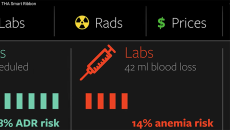Quality and Safety
Making Choices Michigan offers free advance directive services that Great Lakes Health Connect enables clinicians to access, and Community Manager Carol Robinson said doing so helps the organizations pursue the Triple Aim.
Cindy Frey is accusing the hospital of negligence in its diagnosis and treatment of the legendary singer-songwriter.
The condition is costing the overall economy at least $80 billion per year, according to the Centers for Disease Control and Prevention, and that means providers, researchers and IT vendors should pinpoint better disease management techniques to reduce that expense.
Older patients visiting the emergency department who received specialized geriatric care were admitted to the hospital 36 percent of the time, compared to the 53 percent who did not receive this attention.
Even hospitals that are successful at reducing 30-day readmissions today are compared against peers -- and that means they have to continuously get better just to keep up.
Texas Hospital Association creates 'Smart Ribbon' to help doctors better understand cost of orderin…
Baylor Scott & White Health physicians will have access to the EHR data stream to offer better insights into the cost and impact of their orders.
Power grid instabilities persist. The FDA says improvements to medical supply availability are coming soon. Here's how hospitals are handling the situation in the meantime.
Wide variations in hospital performances can have a major financial impact on patients, health systems and surrounding communities, according to researchers at the health system.
Opioids and heroin play a big role, but so do variations in primary care and mental health services.
After months of delay, the Centers for Medicare and Medicaid Services revealed its Quality Star Rating program.
